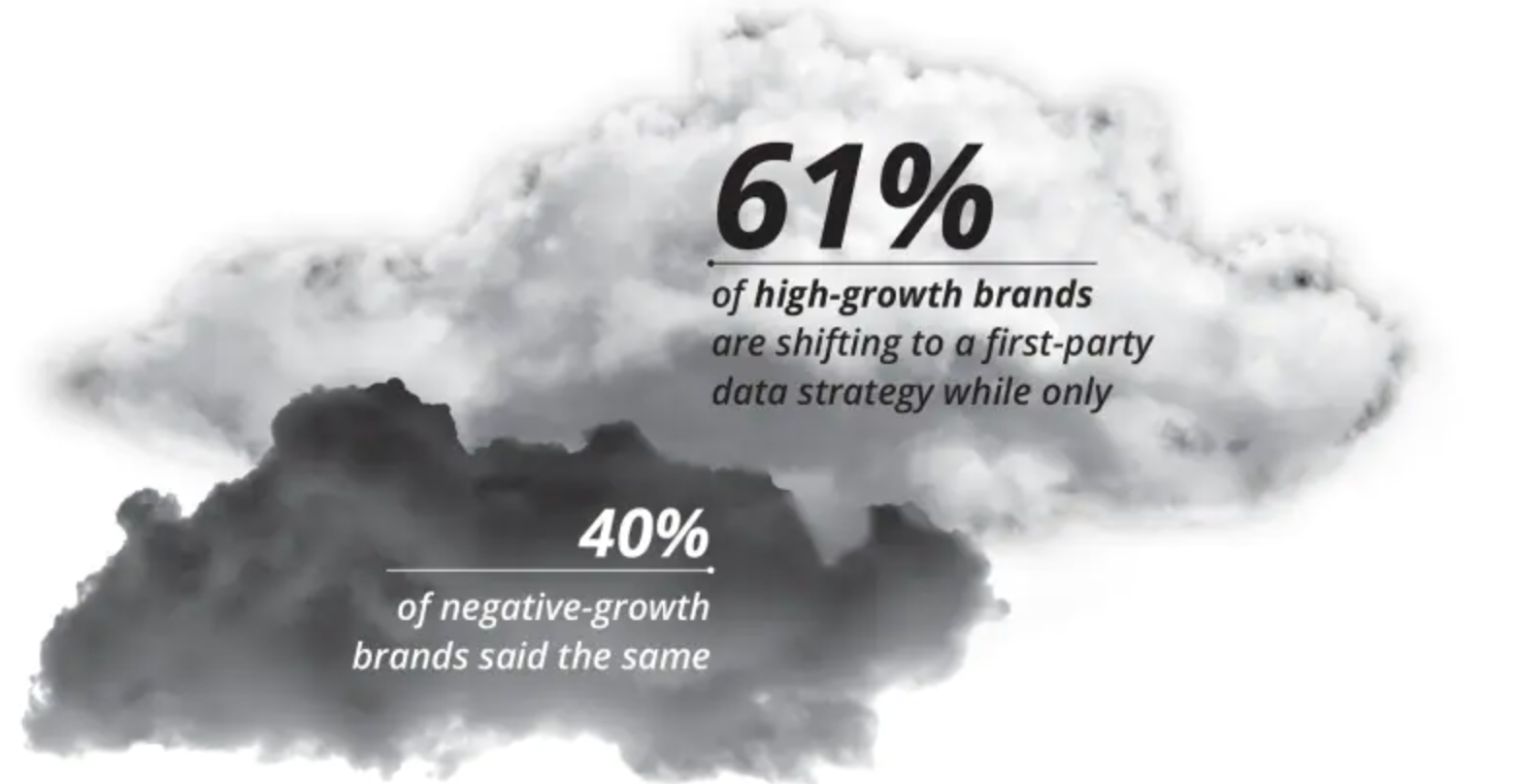61% of high-growth brands are shifting to a first-party data strategy.
What is a first-party data strategy?
It’s a strategy that uses data collected directly with the unambiguous consent of customers. First-party data can come from a variety of online and offline interactions with customers. But in today’s digital world, first-party data often starts with first-party cookies. A first-party cookie is a code that automatically gets stored on a visitor’s computer when they browse a brand’s website.
Sounds simple - so why are high-growth brands only beginning to shift to a first-party data strategy?
Digital marketers have traditionally relied on a third-party data strategy, underpinned by third-party cookies. Third-party cookies are created by domains that are not from the website that you’re visiting. They can be added to any website that loads the third-party server’s code. This has enabled third-parties cookies to collect vast amounts of data.
This broad reach has meant that third-party data has formed the bedrock of large scale digital marketing campaigns in recent years. It’s been transformative for brands because it’s allowed them to market to and re-target more current and prospective customers than ever before.
So, why the shift?
While third-party cookies have been game changing for brands, they’ve not always been viewed favourably by consumers. Recently, there’s been consumer push-back against third-party data. Many argue third-party cookie collection doesn’t make it upfront, easy or transparent for the consumer to comprehend where their personal data is going.
Consumers are increasingly concerned about data privacy and many view extensive data-tracking by brands as ominous. As it’s vital for brands to keep sentiment with their customers, digitally savvy brands are moving away from third-party cookies and developing new ways to interact with consumers and utilise their data in ways that reflect the values and outlook of their consumers.
Are there any other market forces at play?
Both governments and tech giants are starting to take action too. The introduction of the European Union’s GDPR has catalysed the move towards data strategies built on trust in the region. Since its inception in 2018, organisations have been legally obliged to observe a set of data protection principles, rights and obligations. This was the start of a tightening up of data strategies for many.
Another seismic shift occurred in January 2020, when Google announced that they’ll be stopping the use of third-party cookies on Chrome browsers by the end of 2022. Apple has also expressed an increasingly anti-tracking point of view. All this adds up to what’s been coined as the death of third-party cookies.
Where does trust come in?
The depreciation of third-party cookies is undeniably on the horizon. That’s where trust comes in. Google has described first-party data as “vital” and first-party data strategies can only be grown by developing trusting relationships with consumers, so they’re comfortable consenting to the sharing of their personal data.
To reimagine and realise a data strategy that is built on trust, data privacy and digital marketing teams will need to work in tandem and this starts with data infrastructure that allows for consent management, modern data cleaning and storage.
With these foundational building blocks in place, enterprises are equipped to implement a human-first approach to their data management. This involves nurturing and personalising interactions with customers in ways they value.
When consumers view a brand’s interactions as welcome rather than intrusive, they are far more likely to share their data willingly. In fact, 69% of consumers are sanguine about handing over personal data in exchange for improved services.
Interesting - so what can forward-thinking brands do next to build customer trust through a first-party data strategy?
We hosted a series of live lunchtime discussions to explore how Nimbus Ninety members can close the trust gap with customers and strengthen their first-party data strategy. Check out the panel discussions here.






Leave a Comment